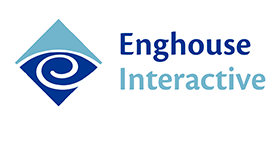Harnessing digital technology is one of the top 3 priorities for legal firms. A trend hastened by the switch to hybrid working as legal teams look to collaborate internally and engage with clients without face-to-face contact.
However, while going digital is a priority, it is essential that it doesn’t impact the high levels of service quality that clients expect. In addition, it needs to meet strict compliance obligations.
A key part of many digital transformation strategies involves replacing traditional telephony with cloud-based unified communications (UC) platforms such as Microsoft Teams or Cisco’s Unified Communications Manager. These systems help to deliver digital agility and flexibility, enhancing collaboration across the firm.
To be successful there are four key areas legal firms should focus on when adopting digital communications technology.
1. Look for In-Depth Support and Experience
Any digital migration project cannot impact service levels. It needs to be undertaken seamlessly while minimizing disruption and delivered to an agreed timeframe. Legal firms should look for a partner that can demonstrate experience of helping comparable businesses successfully achieve similar migrations.
Technology providers should also have close business relationships with relevant vendors such as Microsoft and Cisco. In addition, their solutions should be certified to work seamlessly with their platforms.
2. Insist on the Right Technology
At a minimum your new solution must be able to deliver all the functionality you had before, including fast and efficient call handling to support a positive caller experience.
On top of this look for new features such as skills-based routing which enables your system to recognise and prioritise VIP calls. This enables you to connect them directly to the person that is best able to meet their needs.
Of course, the new system must be easy to manage and needs to integrate with your other business-critical systems and IT infrastructure. This will help to bring down management costs while improving the user experience at the same time.
And with the global reach of many law firms, it needs to be scalable and multilingual with a proven capability to deliver 24/7.
3. Make Security and Compliance a Priority
Any solution you select must provide the highest levels of security and compliance. In addition to complying with broad industry-wide regulations such as GDPR, it needs to address specific requirements – such as those of the UK Solicitors Regulation Authority and others relating to Anti-Money Laundering (AML).
Look for a system that supports the highest levels of data privacy and protection. Particularly when handling client information, such as call records or personal data.
For example, call recording technology should automatically encrypt data and provide options to either store recordings in the cloud or inside your own infrastructure.
If you are embracing the cloud look for a vendor that guarantees your information will be stored in UK data centres that meet relevant regulations and ensure data sovereignty.
4. Ensure the System Can Grow With You
Choose a communications platform that can expand and evolve to meet your changing requirements. Also think beyond the core functionality you currently require to easily incorporate new technologies further down the line such as:
- Call Recording – with the flexibility to meet your security policies and fit within your hosting strategy
- Call Accounting – for the seamless allocation of costs for client billing purposes and management reporting
- Easy Adoption of New Channels – such as chatbots or other digital channels to support customer lead generation and customer service.
Many law firms are now looking to migrate from traditional telephony to unified communications platforms. To reap the biggest benefits, start by choosing the right technology and partner to take you on your migration journey.
Also consider existing features and the functionality you require such as compliance, reporting and call billing (at a minimum). As well as the potential to evolve as the firm grows and requirements change.
This blog post has been re-published by kind permission of Enghouse Interactive – View the Original Article
For more information about Enghouse Interactive - visit the Enghouse Interactive Website
Call Centre Helper is not responsible for the content of these guest blog posts. The opinions expressed in this article are those of the author, and do not necessarily reflect those of Call Centre Helper.
Author: Enghouse Interactive
Published On: 3rd May 2022
Read more about - Guest Blogs, Enghouse Interactive






 Enghouse Interactive delivers technology and expertise to help bring your customers closer to your business through its wide range of customer contact solutions.
Enghouse Interactive delivers technology and expertise to help bring your customers closer to your business through its wide range of customer contact solutions. 





























